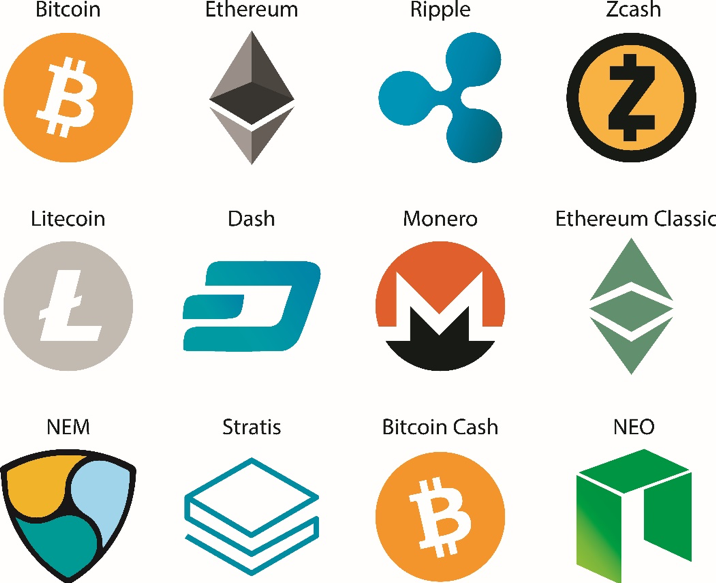Those with an interest in technology and finance will have been monitoring the cryptocurrency revolution with increasing interest over the last decade. Once a movement that was initially cast aside by doubters as just a flash in the pan, the cryptocurrency field is now populated with over 2,500 distinct currencies, ranging from heavy hitters like Bitcoin and IOTA, to smaller names like Dentacoin. New cryptocurrencies are being registered almost every day, and it certainly seems like the product is here to stay.
Cryptocurrencies market themselves as global currencies with faster transactions, better security encryptions and anonymity for the user – all of which initially sounds ideal for use in online transactions. However, early investors found that many established traders were unwilling to even consider accepting the currency. With a gap appearing in the market, new businesses sprang up, willing to take payments in cryptocurrency, thus helping to feed the cryptocurrency market itself, as the coins’ values became more than just theoretical. But the list of places where investors can spend their earnings is still very small. Cryptocurrencies have done much to establish themselves as trusted methods of payment, so why isn’t this enough for most big name retailers?
A large part of it seems to be that firms are reluctant to invest in the technology needed to make cryptocurrency transactions. Because the currencies have no real-world value and aren’t tied to anything material, like fiat currencies, current ways of processing money don’t work. And while most investors still prefer to stockpile their cryptocurrencies, hoping their value will increase, instead of spending them, there isn’t enough demand to make it worthwhile. Even if internet retailers started processing these transactions, they would make up far less than 1% of all purchases.
Why cryptocurrency hasn’t taken off in online gambling
Cryptocurrency and online gambling go back a long way. When online betting site SatoshiDice was set up in the early 2000s, it used to make up 50% of all Bitcoin transactions. However, progress has stalled since then – for these reasons.
- Anonymity is against the rules. The UK Gambling Commission currently forbids anonymity at online casinos. When operators sign up for a gambling license, they’re agreeing to identify all of their players (that includes their age, address and sometimes their occupation) plus their sources of funds – as part of strict anti-money laundering rules. That’s why when you look at the accepted payments at a leading online casino such as 888, you’ll find many currencies are accepted – but not cryptocurrency.
- Price volatility. Bitcoin’s headline-grabbing hikes in valuation has been impressive for some investors, but concerning for many businesses. Some banks have even banned customers from using credit cards to purchase cryptocurrency.
- Security concerns. Cryptocurrency doesn’t exactly have a great reputation for being the most secure currency to use. After all, both online casinos and customers are aware that it’s used by criminal gangs to purchase weapons and other illicit materials on the dark web.
- Limited market opportunity. Despite all the recent hype about cryptocurrency, it’s still not widely used. Some specialist sites do offer payments in cryptocurrency, but they’re few and far between – and they’re not in a position to challenge the heavyweights just yet. In the same way that a shoe shop selling only size 5 red sandals is never going to compete with major retailers, these casinos have to recognise that they’re catering to a very specific demographic.
Reasons to be in favor of using cryptocurrency in gambling
There are a considerable number of cryptocurrency cheerleaders in the online gambling community. These are some of their arguments in favor:
- No transaction fees. With no intermediary to pay for handling payments, casinos and players would both be saving money on admin charges when using cryptocurrency.
- No license required. One of the big advantages of setting up a cryptocurrency casino is that there’s no license required – that’s if they use no fiat currencies whatsoever.
- Fraud prevention. One of the biggest benefits for a fledgling casino is that cryptocurrencies protect the business against player fraud. The entire principal of cryptocurrencies is to be able to track every transaction, so there will rarely be disputes about lost winnings, failed payments, or calls for fraudulent refunds.
- CasinoCoin. This relatively new cryptocurrency is attempting to bring cryptocurrencies into mainstream gaming. With online wallets already available, they are hoping to appeal to the established mainstream market, as well as cryptocoin investors. Boasting new technology that will appease regulatory bodies, such as the most thorough anti-money laundering tracker in the business, CasinoCoin is the first cryptocurrency developed solely with the gaming industry in mind. It’s also a shining example of how cryptocurrencies can work for businesses.
- Edgeless Casino. The world’s first casino that runs entirely on blockchain offers games with a 0% house edge, supported by Ethereum blockchain technology. Instead of cash, Edgeless Casino players use EDG tokens to gamble. These casinos were founded to eliminate the possibility of cheating – both by players and by casinos themselves.
What does the future hold for cryptocurrency in gambling?
Cryptocurrency has proven a difficult market to predict because of its many up and down swings. Bitcoin alone has oscillated so much that experts have rung the death knoll more than 300 times. Yet it is not only still going strong, but has allowed many other cryptocurrencies to follow in its wake. Its creator’s prediction that it will have overtaken fiat currency by 2030 may seem far-fetched, but the longer cryptocoins stick around, the more converts they are likely to achieve. If some form of cryptocurrency systems eventually becomes the norm for online transactions – perhaps in a similar way that PayPal has previously dominated the market – is it inevitable that bigger names will have to start accepting it as a payment method?
Probably, although it still feels some way away from happening. For the general public, and online casinos, the instability of the value of cryptocurrencies – and the potential dangers – still outweighs their many benefits. And for those who find the concept confusing, or those who just aren’t technologically savvy, there is very little incentive to even give cryptocurrencies a second look. So while it remains a niche market, it looks like the specialist casinos will continue to dominate. But this isn’t necessarily a bad thing. There is enough competition among the cryptocasinos to keep standards high and promote the development of high-quality and entertaining games which will keep clients coming back for more. The big names won’t be worried yet, but they will be keeping a close eye on successes to see whether it is worth diversifying themselves.






